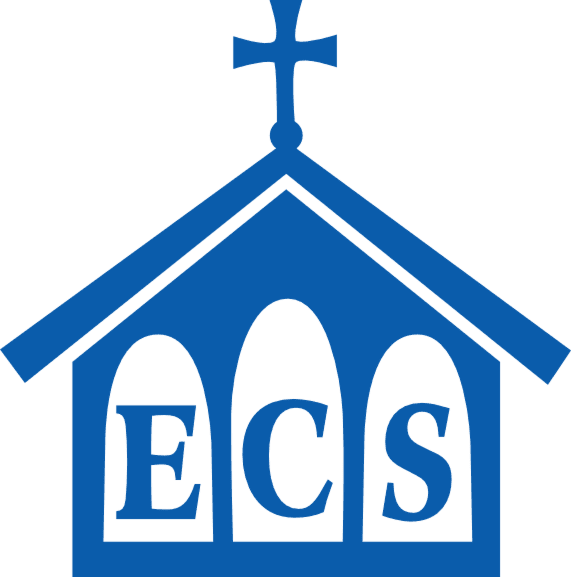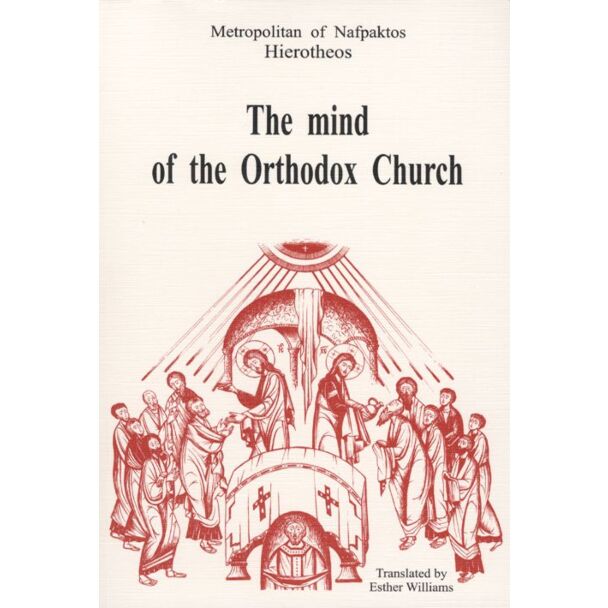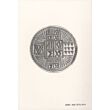The mind of the Orthodox Church
Metropolitan of Nafpaktos Hierotheos
Translated by Esther Williams
Translated by Esther Williams
Publication Data: Levadia, Greece: Birth of the Theotokos Monastery, 2005
Format: softcover
Number of Pages: 253
Dimensions (l × w × h): 20.7 cm × 14.0 cm × 1.6 cm
Additional Information: black-and-white illustrations
ISBN: 960‒7070‒39‒9
Metropolitan of Nafpaktos Hierotheos
Translated by Esther Williams
“My visits both to the East and to the West have made me realise that questions like what the Church is which Church expresses authenticity, what exactly constitutes the ecclesiastical mind-set are really very interesting and modern. Many people, disappointed by various Christian denominations, are seeking out the Orthodox Church of Revelation, of the Fathers, of the Ecumenical Councils, of the martyrs and of the saints. However, due to the ecclesiological confusion which exists even within the local Orthodox ecclesiastical communities they do not find what they are looking for. And this arises because secularization also troubles many Orthodox communities, because either a dogmatic minimalism or dogmatic maximalism prevails, or even more so an ecclesiological Monophycitism or an ecclesiological Nestorianism prevails. This present book[...]consists of nine talks[...that] set out the foundation of Ecclesiology according to the Fathers and they try to help us avoid the temptations of so called ‘Baptismal theology’ and of ‘dogmatic syncretism’ as well as avoid the dangers of legalism and secularization.”
—“Preface to the English edition”
CONTENTS
Preface to the English edition
Introduction
1
Origin and revelation of the Church
1. Etymology of the word ‘Ekklesia’ (Church)
2. Origin and revelation of the Church
a) The beginning of the Church
b) The Church in the Old Testament
c) The Church in the New Testament
d) The perpetuity of the Church
3. Conclusion
2
“Definition” and characteristics of the Church
1. The Church as a mystery
2. “Definition” of the Church
3. The characteristics of the Church
a) One
b) Holy
c) Catholic
d) Apostolic
3
Orthodoxy, according to the holy Fathers
1. The term ‘Orthodoxy’
2. Orthodoxy according to the holy Fathers
a) The truth, according to St. Gregory Palamas
b) The right faith, according to St. Maximos the Confessor
c) Church, Orthodoxy and Divine Eucharist, according to St. Ireneos
d) The unity of the Church, according to Nikolas Kavasilas
4
The Church and the Divine Eucharist according to St. Maximos the Confessor
1. Introductory about the “Mystagogy”
2. The Church according to St. Maximos
3. The Divine Eucharist, according to St. Maximos
a) Divine Eucharist and Divine Economy
b) Divine Eucharist and the soul’s perfection by knowledge
4. Recapitulation and exhortations
5. Conclusions
5
The mind of the Orthodox Church
1. Analysis of the term “mind of the Orthodox Church”
2. Characteristics of the orthodox mind of the Church
a) Christological
b) Trinitarian
c) Ecclesiological
d) Esoteric
e) Deification
f) Personal and social
g) Prayerful
6
The Catholic way of life
1. The fall and restoration of man
2. Making salvation one’s own
3. The catholic way of life
a) Theologians and non-theologians
b) Neptic and social theology
c) Action (praxis) and theoria (vision of God)
d) Mystical and ascetic life
e) Apophatic (negative) and cataphatic (positive) theology
f) Monks and married people
g) Monasteries and Parishes
h) Monks and Missionaries
i) Clergy and laymen
7
Orthodoxy and legalism
1. Antinomianism and legalism
2. Difference between Papism and Orthodoxy
3. The value of the Law and the sacred Canons
4. Confession-penances
8
Secularism in the Church, theology and pastoral care
1. The double meaning of the word ‘cosmos’
2. Secularism in the life of the Church
a) Secularism in the Church
b) Secularism in theology
c) Secularism in pastoral care
9
The “Synodikon of Orthodoxy”
1. Church and Synods
2. The two Ecumenical Councils
3. Anathemas-Acclamations
4. Some characteristic signs
a) The condemnation of philosophy
b) The theology of the uncreated Light
c) Hesychasm
d) The divinely inspired theologies of the saints and the devout mind of the Church
Format: softcover
Number of Pages: 253
Dimensions (l × w × h): 20.7 cm × 14.0 cm × 1.6 cm
Additional Information: black-and-white illustrations
ISBN: 960‒7070‒39‒9
Metropolitan of Nafpaktos Hierotheos
Translated by Esther Williams
“My visits both to the East and to the West have made me realise that questions like what the Church is which Church expresses authenticity, what exactly constitutes the ecclesiastical mind-set are really very interesting and modern. Many people, disappointed by various Christian denominations, are seeking out the Orthodox Church of Revelation, of the Fathers, of the Ecumenical Councils, of the martyrs and of the saints. However, due to the ecclesiological confusion which exists even within the local Orthodox ecclesiastical communities they do not find what they are looking for. And this arises because secularization also troubles many Orthodox communities, because either a dogmatic minimalism or dogmatic maximalism prevails, or even more so an ecclesiological Monophycitism or an ecclesiological Nestorianism prevails. This present book[...]consists of nine talks[...that] set out the foundation of Ecclesiology according to the Fathers and they try to help us avoid the temptations of so called ‘Baptismal theology’ and of ‘dogmatic syncretism’ as well as avoid the dangers of legalism and secularization.”
—“Preface to the English edition”
CONTENTS
Preface to the English edition
Introduction
1
Origin and revelation of the Church
1. Etymology of the word ‘Ekklesia’ (Church)
2. Origin and revelation of the Church
a) The beginning of the Church
b) The Church in the Old Testament
c) The Church in the New Testament
d) The perpetuity of the Church
3. Conclusion
2
“Definition” and characteristics of the Church
1. The Church as a mystery
2. “Definition” of the Church
3. The characteristics of the Church
a) One
b) Holy
c) Catholic
d) Apostolic
3
Orthodoxy, according to the holy Fathers
1. The term ‘Orthodoxy’
2. Orthodoxy according to the holy Fathers
a) The truth, according to St. Gregory Palamas
b) The right faith, according to St. Maximos the Confessor
c) Church, Orthodoxy and Divine Eucharist, according to St. Ireneos
d) The unity of the Church, according to Nikolas Kavasilas
4
The Church and the Divine Eucharist according to St. Maximos the Confessor
1. Introductory about the “Mystagogy”
2. The Church according to St. Maximos
3. The Divine Eucharist, according to St. Maximos
a) Divine Eucharist and Divine Economy
b) Divine Eucharist and the soul’s perfection by knowledge
4. Recapitulation and exhortations
5. Conclusions
5
The mind of the Orthodox Church
1. Analysis of the term “mind of the Orthodox Church”
2. Characteristics of the orthodox mind of the Church
a) Christological
b) Trinitarian
c) Ecclesiological
d) Esoteric
e) Deification
f) Personal and social
g) Prayerful
6
The Catholic way of life
1. The fall and restoration of man
2. Making salvation one’s own
3. The catholic way of life
a) Theologians and non-theologians
b) Neptic and social theology
c) Action (praxis) and theoria (vision of God)
d) Mystical and ascetic life
e) Apophatic (negative) and cataphatic (positive) theology
f) Monks and married people
g) Monasteries and Parishes
h) Monks and Missionaries
i) Clergy and laymen
7
Orthodoxy and legalism
1. Antinomianism and legalism
2. Difference between Papism and Orthodoxy
3. The value of the Law and the sacred Canons
4. Confession-penances
8
Secularism in the Church, theology and pastoral care
1. The double meaning of the word ‘cosmos’
2. Secularism in the life of the Church
a) Secularism in the Church
b) Secularism in theology
c) Secularism in pastoral care
9
The “Synodikon of Orthodoxy”
1. Church and Synods
2. The two Ecumenical Councils
3. Anathemas-Acclamations
4. Some characteristic signs
a) The condemnation of philosophy
b) The theology of the uncreated Light
c) Hesychasm
d) The divinely inspired theologies of the saints and the devout mind of the Church
Write Your Own Review






